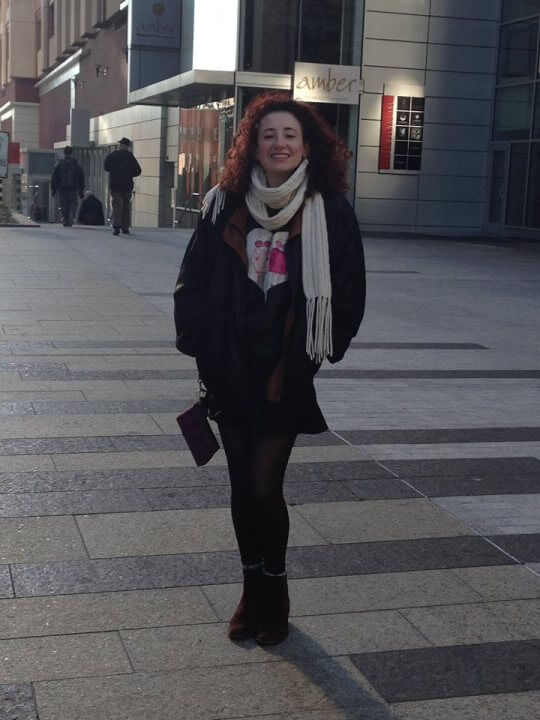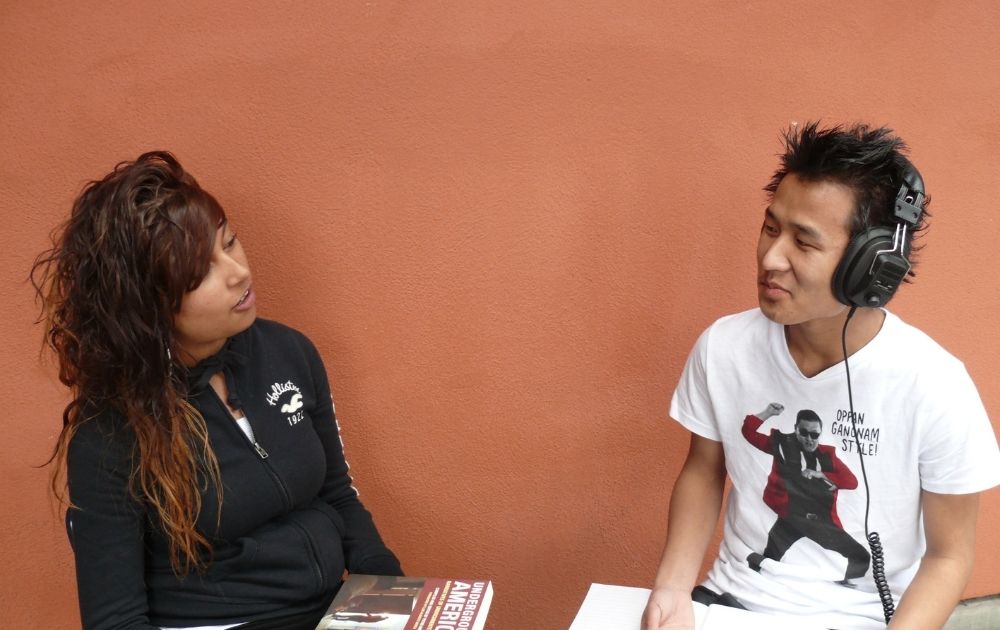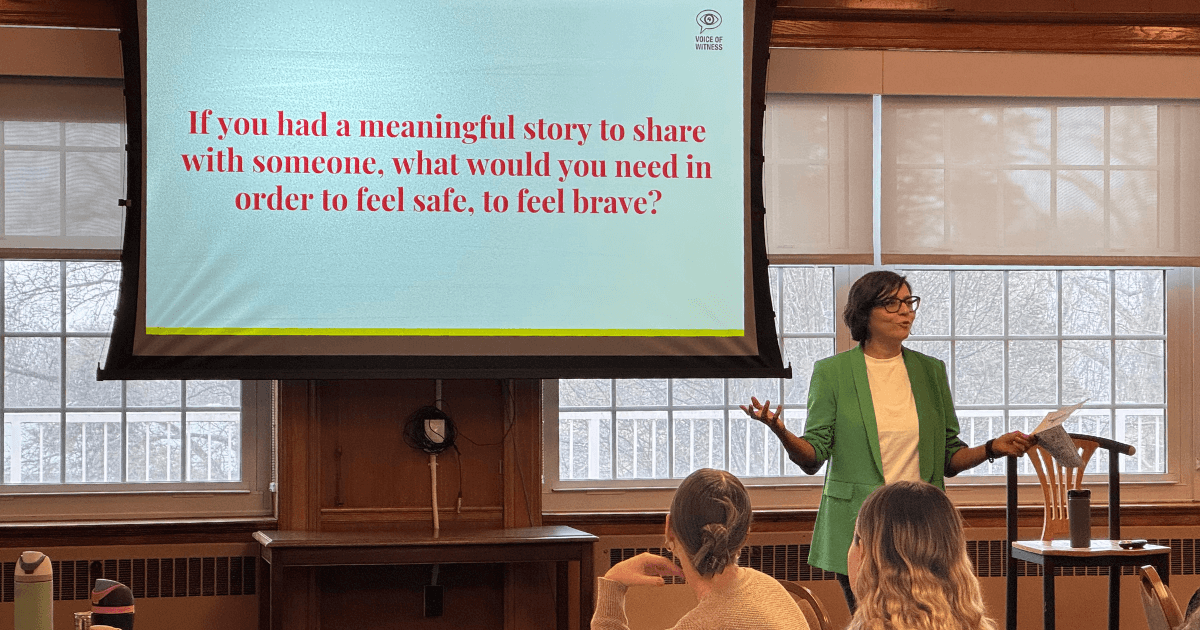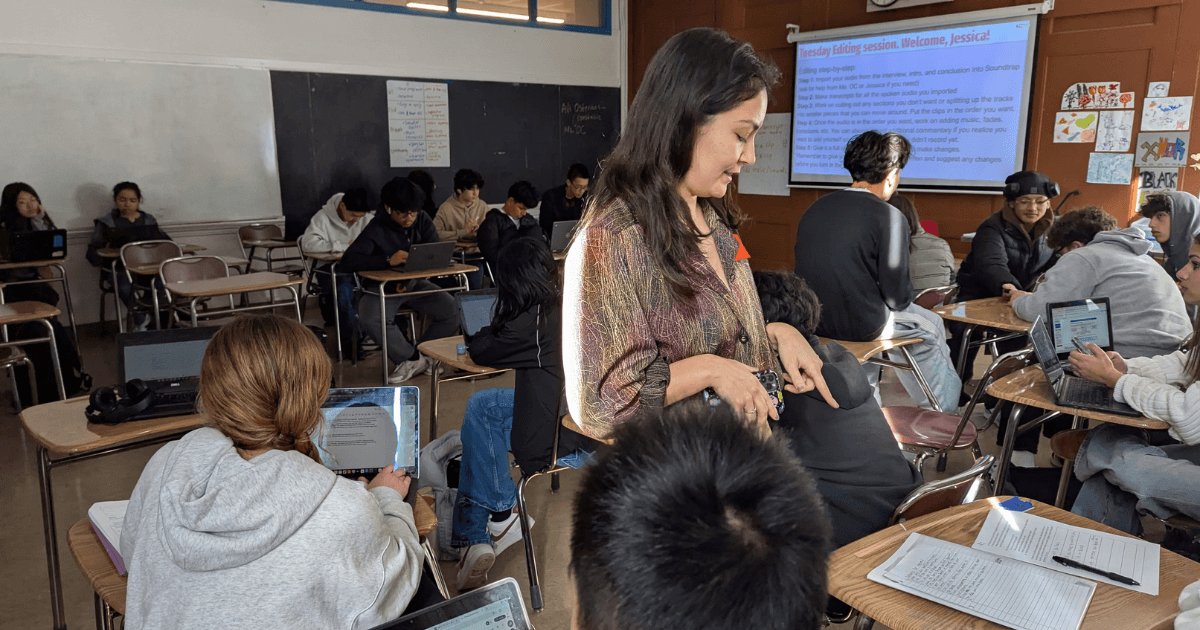
Sophie Edelhart
Sophie Edelhart is a senior at the Jewish Community High School of the Bay in San Francisco. Outside of school, she serves on the San Francisco Youth Commission, a body of seventeen young people who advise the Mayor and Board of Supervisors on issues affecting youth in the city. Sophie is also a complete culture nerd, so when she’s not at school or City Hall, you’ll likely find her reading, watching movies, listening to podcasts, or browsing political blogs.
Why Oral History?
I first got interested in oral history when I was assigned a “This American Life” project in my junior year of high school. The assignment was to develop a podcast around a theme and use interviews, narration, and music to create a 10 minute long piece. My group decided to focus on our school. More specifically, my group focused on the tension between our mostly white, Jewish private school located in the middle of a predominately African American, low-income neighborhood. We learned a lot in the process just by going out and talking to people. We learned more than we intended to and I really fell in love with the process of interviewing. I particularly took to the editing part of the project and piecing together a narrative with multiple voices. It made me want to continue to try and do more with the medium, so when it came time to come up with my senior project, I decided to make a podcast. I find oral history appealing because having someone talk about their experiences in their own words provides a dimension to storytelling that I think is essential to understanding someone’s own perception of an event. That’s really invaluable when you’re trying to empathize with someone and learn new things.
Podcasts + Oral History
For the past two years I’ve been a Mayoral Appointee on the San Francisco Youth Commission, a body of 17 young people who advise the Mayor and Board of Supervisors on issues affecting youth in San Francisco. Last year, I was chair of the Youth Justice committee, which is a specific issue-based committee that focuses on youth in or affected by the justice system. It was through that position that I began to work with Project WHAT. Project WHAT is an organization composed of children of incarcerated parents who advocate for better policy and services aimed at the children and families of those who are incarcerated. During our yearlong partnership with them, I got the opportunity to hear some of the youths’ stories. It made me realize how pressing these issues are, how little attention they get, and how important it was to hear those stories from the youth themselves. It was then that I decided I wanted to try and find some way to get these stories out in the world, so I decided to make a podcast.
I chose the medium of podcasting because I think, as opposed to other mediums, it really requires the act of just listening. Listeners have to focus on the words being spoken instead of on visual aids or explanations. Podcasts are especially conducive to oral history for that reason. I feel the goal of an oral history is to help others listen and truly hear what another person has to say; podcasts require people to dedicate their attention to the storyteller.
When I decided that I wanted to make a podcast, I began looking for resources to help me with the interview process as well as the editing process. My advisor, Roni Ben-David, put me in contact with Claire Kiefer from Voice of Witness. I met with Claire at the beginning of my process and she gave me a ton of advice on conducting interviews and making questions. She really helped me realize that my goal as an interviewer was to guide conversation, not dictate it.
Not Just a Number
The most interesting thing that I learned during this project is that no two experiences are alike. I interviewed five youth and all five had different personal experiences. Parental incarceration definitely carries some stigma, and people assume certain things about what that experience must be like. Some youth wanted to rebuild their relationship, some didn’t. Some youth knew their parents before their incarceration, some didn’t. Some youth feel their parent’s incarceration heavily impacted their life, some didn’t. Going through this process, working with Project WHAT, served to humanize and contextualize not only the experiences of having a parent incarcerated but also the parents themselves. I only hope that others feel the same.
While I can’t speak for the youth of Project WHAT directly, I believe that having the ability to share their stories puts the spotlight on them as individuals rather than being a number in a statistic. Given the current state of affairs, children of incarcerated parents aren’t often given the space or mainstream attention to tell their stories. This project gave them the medium to speak about their experiences and I hope that they found it as valuable as I do.
Always Empathy
For budding oral historians, I would say to trust your instincts, don’t be shy, and approach every interview with empathy. Always empathy. Your job is to provide a space where someone can share 100% of themselves and the world as they see it. The more you try and understand where they’re coming from, the more potential you have to learn.




